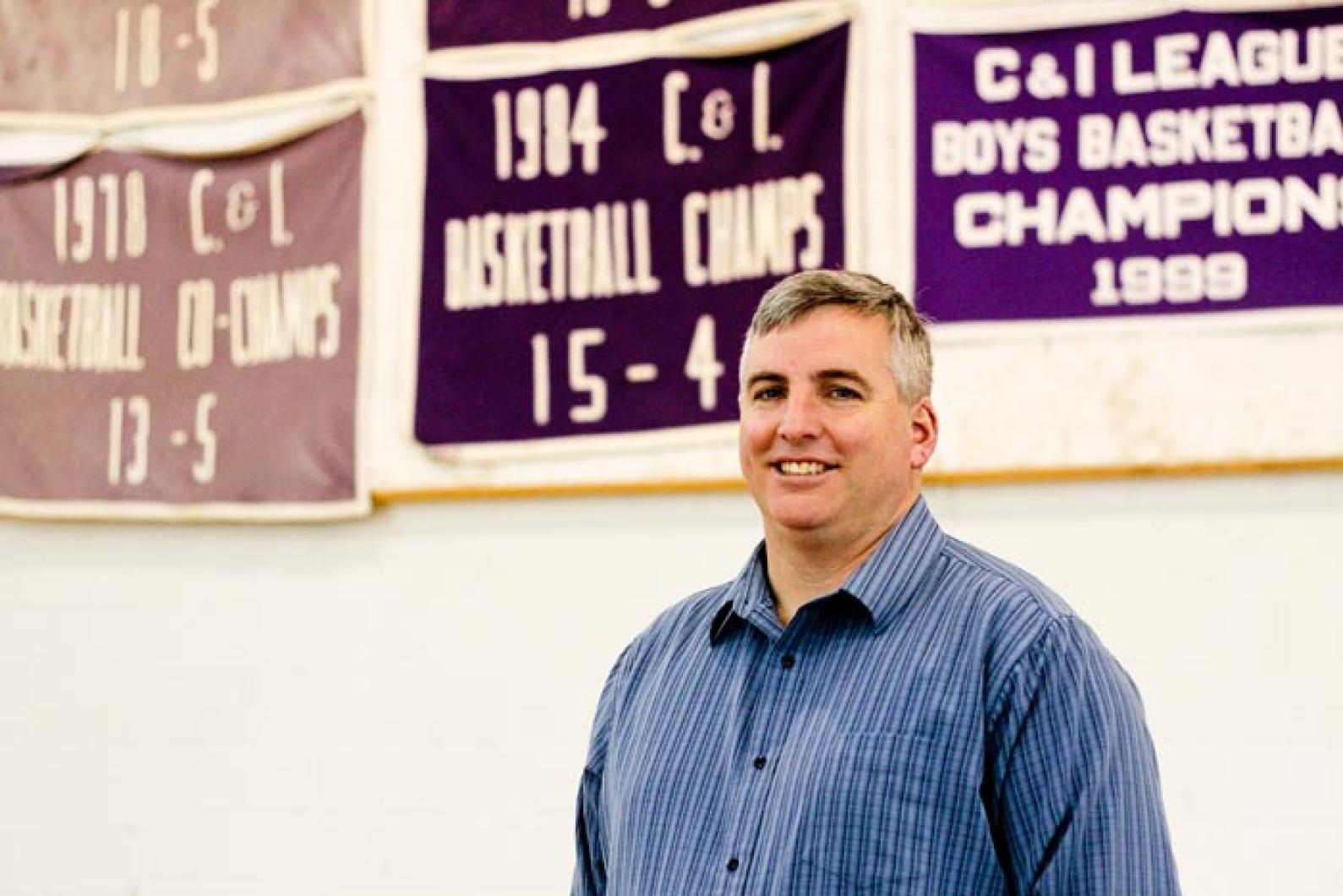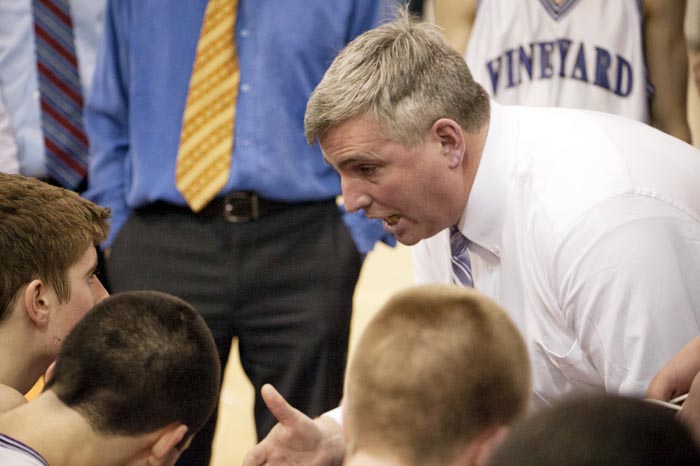On the walls of the regional high school gymnasium adjacent to two yellowing banners from 1985 and 1986, and below one hung just last year to commemorate the boys’ basketball team’s Eastern Athletic Conference championship, is an empty space where another E.A.C. championship banner will go. Mr. Joyce earned two of those banners as a center for the Vineyard team, and now he will hang his second as a coach. Last week The Boston Globe recognized him as their Division 3 coach of the year.
“I didn’t score a point or record a stat all year, so it’s much more an award for the whole program,” he said in an interview this week.
While the double-overtime playoff heartbreaker to Cardinal Spellman is still too painful for him to recall (“I haven’t brought myself to look at the video yet,” he says wearily) Mr. Joyce is able to reflect warmly on a season that brought his team to the brink of the state finals.
“The thing that sticks with me the most is just the interaction with the kids,” he said, while preparing to teach biology class at the high school on Thursday morning. “Just the way they were with each other, the way they were with the coaching staff, I think that’s what led to the success.”
Each year as high school sports rosters are patched together almost from scratch, with the departure of college-bound lettermen and the arrival of timid underclassmen, coaches must forge a new a sense of chemistry and identity. For Mr. Joyce, who had only four returning players at the start of the season, that challenge was unusually apparent.
“We were a work in progress from the beginning,” he said. “The relationships we built among the team that were a big part of our success — all of that goes on not at the two hours of practice, it goes on all day long, on bus rides, during the overnight [trip to scrimmage in Connecticut] at the beginning of the year. We’ve even gone to college games as a team just to get the kids off the Island and see what opportunities are out there to play in college.”
In his eight years at the helm, Mr. Joyce has overseen a renaissance of an Island basketball program that was, in his day, the toughest ticket in town.
“Basketball in the 70s and 80s here was . . . was it,” he said. “The gym was packed every night. I used to come up here from the time I was seven or eight to watch the boys and girls. People who didn’t have kids and just wanted to come watch the games would come.”
Once he was old enough, he helped fill those rafters, earning two Cape and Islands titles under the run-and-gun offenses of coaches Jay Schofield and Nelson Oliver, whose influence still figures largely in his coaching style and philosophy.
“I was the center on our team, we didn’t have a big team,” he said. “I played with three of my best friends. Three of us were from Oak Bluffs and we had played basketball forever together, from fourth grade on, so it was a lot of fun. And Jay Schofield and Nelson were great coaches in the way they brought what they could out of the kids.”
After graduating from high school and returning from a college career running track and cross-country at Trinity in Hartford, Mr. Joyce found his old gym depressingly bare.
“In my first year as coach the gym would be empty for boys’ basketball games which to me was sacrilegious,” he said.
But as the team began winning the fans returned.
“We’ve tried to invite community back in as much as possible,” he said. “We try to get word out — come on up, it’s five o’clock in the afternoon, you’ve got nothing to do anyways, come up here and be entertained for three hours.”
In the team’s final game in Sandwich this year, Mr. Joyce estimates that some 400 fans made the trip across the Sound to cheer on the men in purple and white, and the coaching staff was moved by the support.
The 2011 team finished with its best record under Mr. Joyce’s leadership, 19-4, in the process earning him his first coach of the year honors. As for next year Mr. Joyce says that he is unable to make a prediction about another E.A.C. title, but his hesitation does not stem from a lack of talent on the team.
“We’ll have to see where the kids are in eight months because eight months in a teenager’s life is like 400 years,” he said. “You never know what’s going to go on between now and then physically and emotionally. Predicting teenagers’ lives is harder than predicting the stock market.”





Comments (1)
Comments
Comment policy »